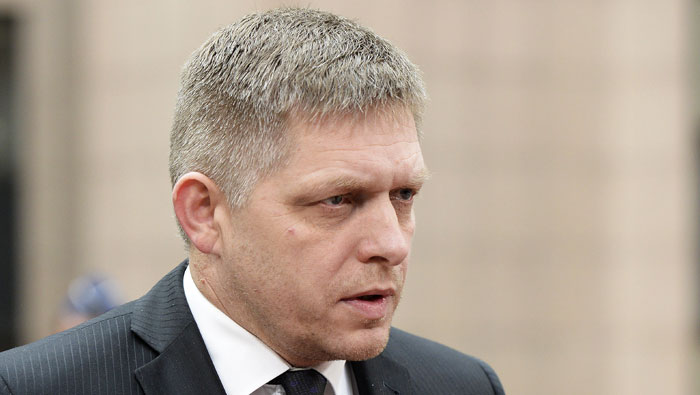
Bratislava: Slovakia's president said on Monday he will ask Prime Minister Robert Fico to try to form a new government, after Fico's leftist Smer party won the most votes but lost its parliamentary majority in Saturday's election.
Fico faces a tough job as five of the eight parties elected to parliament have taken an initial stance against working with him.
Slovakia will hold the European Union's rotating presidency in the second half of the year, giving it a central role in the EU's migration crisis and, potentially, coping with the turmoil if Britain votes to leave the EU in a referendum in June.
"A complicated situation has emerged, there are several dividing lines between the elected parties," said President Andrej Kiska, a non-partisan figure who has the authority to appoint prime ministers.
"Some of them cannot be overcome and it would not be right to try. Some of them will be very hard to overcome but it will be inevitable. Representatives of the parties will have to deal with it," he said. Kiska will ask Fico to seek to form a government after he returns from EU summit in Brussels.
Fico had hoped an anti-immigration stance and popular measures such as a cut in the sales tax on food and free train rides for students and pensioners would secure him a third term.
His party won 28.3 per cent of the vote, down from 44.4 per cent in the 2012 election, as many voters responded to opposition campaigning against corruption and shortcomings in healthcare and education.
Part of the anti-immigrant vote went to the far-right People's Party-Our Slovakia, a party none of the others will deal with as they see it as fascist group.
Fico is likely to try to lure the centrist Siet, the Most-Hid ("Bridge") party and the moderate nationalist Slovak National Party (SNS).
But Siet said on Monday it would not join a Fico coalition and Most-Hid, a centrist party with links to the ethnic Hungarian minority, refuses to work with the SNS due to its nationalistic record.
The three biggest centre-right parties -- the libertarian Freedom and Solidarity (SaS), Ordinary People, and a new protest movement "We Are Family" -- said they would also not work with Fico.
SaS chief Richard Sulik could be given the next chance to try form a government if Fico fails, but would face similar obstacles.
An economist favouring flat tax and legalising marijuana, Sulik campaigned on a strong anti-Fico platform, attacking his welfare benefits as populism, but took the same line as Fico on immigration.
Sulik brought down the last centre-right cabinet in 2012 over its refusal to back a euro zone bailout for Greece but said he would avoid such clashes in the future.
The "We Are family" party of businessman Boris Kollar said it could support an SaS-led cabinet but would not join any coalition. With the backing of Kollar's 11 votes, a centre-right grouping of SaS, Ordinary People, SNS, and Siet would have 76 seats in the 150-seat parliament, far from the "stable majority" that President Kiska says he wants.
Otilia Dhand, an analyst at Teneo Intelligence, said the stalemate could lead to a very unstable coalition or even a temporary technocrat cabinet to carry the country through its EU presidency.